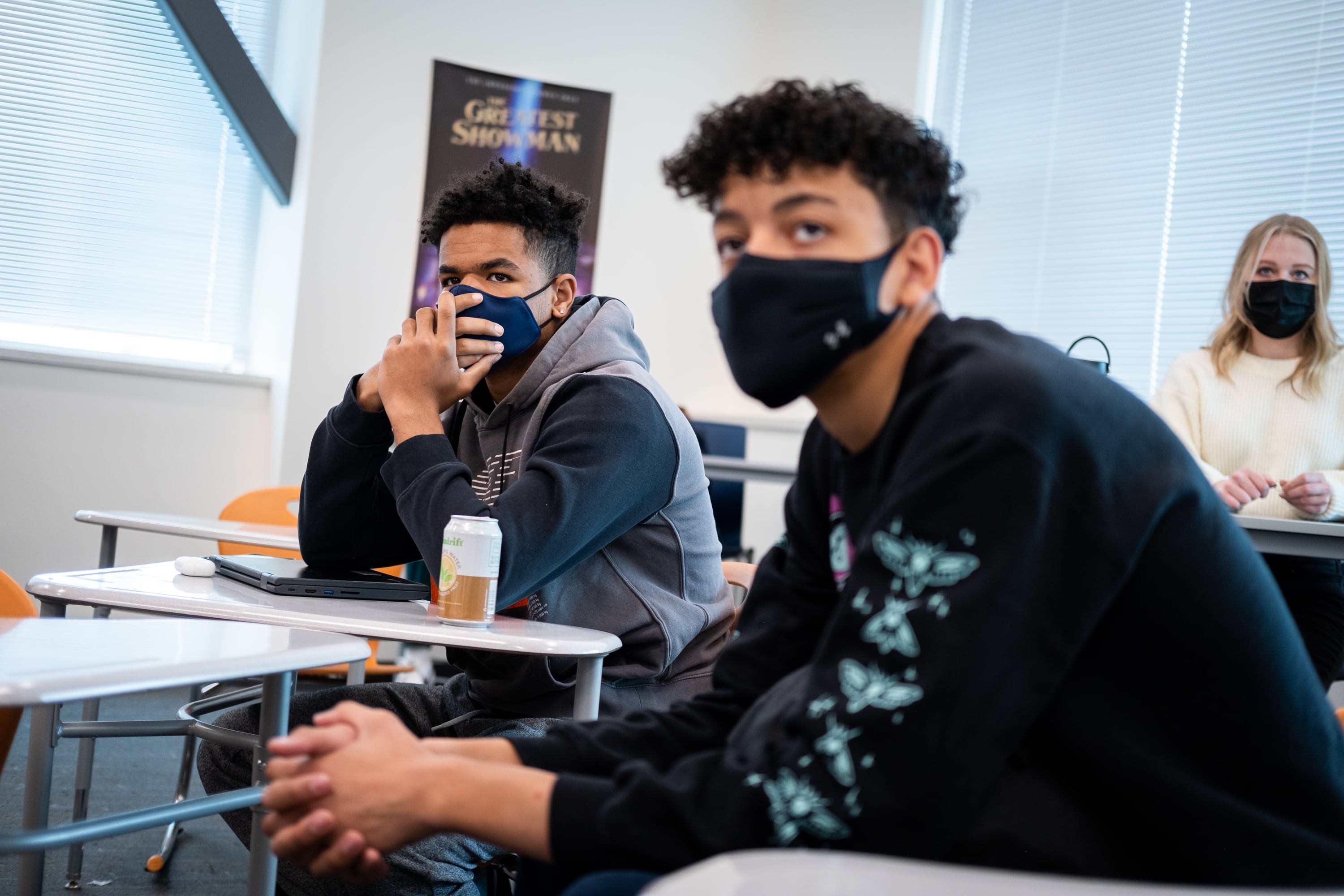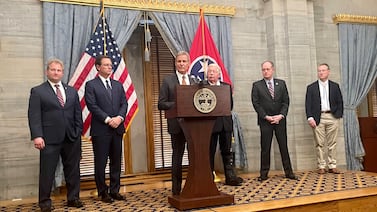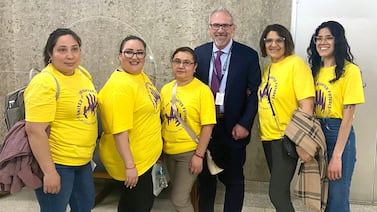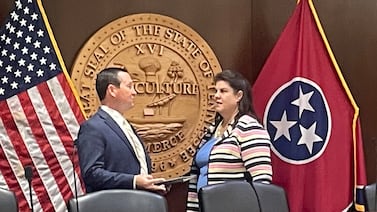Denver’s semi-autonomous innovation schools could get back control over school calendars, teacher hiring timelines, the structure of school leadership, and other flexibilities leaders say are key to providing a better educational experience.
Citing unintended consequences, a majority of Denver school board members said during a heated discussion Thursday that they support moving forward with a proposal to overturn parts of a controversial new policy adopted in March. The board is set to vote on the proposal at a special meeting next Thursday.
Key parts of the new policy, which was meant to shore up teacher job protections, would remain in place. Innovation schools would have to abide by Colorado’s version of tenure. They’d also have to follow certain provisions of the teachers’ union contract, including one related to grievance rights.
But they wouldn’t have to follow the entire contract, a change that would preserve more school autonomy.
“This is truly the middle ground people were looking for,” said board Vice President Tay Anderson.
The revisions were introduced by Anderson at a board meeting Thursday. The discussion that followed was unusually tense, with board members interrupting each other, arguing about procedure, and animatedly reading aloud opposing emails they got about the proposal.
The recently adopted policy requires Denver’s 52 innovation schools to follow the state’s tenure law and the entirety of the district’s teachers union contract. At the heart of the disagreement among board members is whether the policy will have unintended consequences. Some board members said they feel they were misled about what the policy would do and why it was needed. Board member Scott Esserman said the process of passing it was rushed and flawed.
“We jammed this down people’s throats without knowing what the outcome of this policy would be,” Esserman said. “It is incumbent upon us as a board to correct that.”
Board President Xóchitl “Sochi” Gaytán and member Scott Baldermann disagreed.
“I see no unintended consequences,” Baldermann said, explaining that he doesn’t believe any school should be able to waive any tenet of a teachers union contract.
The board passed the new policy in March after weeks of heated debate. The vote was split, with Anderson and member Michelle Quattlebaum voting against it. The teachers union supported the policy, while innovation school leaders and parents vehemently opposed it.
Some board members said they didn’t fully understand the ramifications of the new policy until two weeks after it passed, when district staff wrote a memo outlining the new restrictions. For instance, board members said they didn’t realize that requiring innovation schools to follow the union contract would prevent schools from developing their own calendars to provide teachers with more training days or recognize Islamic holidays that the district does not.
Innovation school leaders who received the memo were upset.
“When the board passed the [policy] … we were assured by several of you that we would not see the unintended consequences we’re now seeing,” Frank Coyne, a leader at the Denver Green School, told the board in April. “I feel like I’ve been lied to.”
After reading the memo, four board members — Anderson, Quattlebaum, Esserman, and Carrie Olson — requested a school-by-school analysis of the implications of the new policy, known as an executive limitation because it directs the superintendent.
Esserman and Olson voted for the policy but issued a joint statement afterward that said they acknowledge their votes caused harm to “some members of our communities.” Esserman and Olson wrote that they’d been assured by district staff that “with some exceptions, innovation schools will be able to continue implementing their innovation plans,” and added that the board “retains the right” to revise the policy if it has unintended consequences.
Both Esserman and Olson, along with Anderson and Quattlebaum, expressed support Thursday for revisiting the policy. The four represent a majority of the seven-member board.
The district and the Denver Classroom Teachers Association are currently negotiating a new contract, as well as a memorandum of understanding regarding which provisions of the contract should be flexible and which should not. Union President Rob Gould said in an interview Thursday that the board should not intervene by revising the policy mid-negotiation.
But Quattlebaum and others pointed out that the board’s original vote in March also occurred in the middle of negotiations, which began in February.
The debate over Denver’s innovation schools has caught the attention of state leaders. Innovation status is enshrined in state law and has long been used as a way to spur school improvement efforts. It also serves as a middle ground between district-run and charter schools.
In the aftermath of the original Denver vote, lawmakers passed a bill creating a mediation process to handle disagreements between districts and innovation zones, though Denver succeeded in protecting school board authority in the final version.
And at a recent State Board of Education progress report on Denver’s Abraham Lincoln and Manual high schools, State Board members grilled Marrero about the importance of innovation waivers to the two schools’ improvement efforts and to the district’s other schools. Even under the new policy, schools facing state intervention like Abraham Lincoln and Manual retain a higher level of autonomy and can apply for more waivers.
Melanie Asmar is a senior reporter for Chalkbeat Colorado, covering Denver Public Schools. Contact Melanie at masmar@chalkbeat.org.








